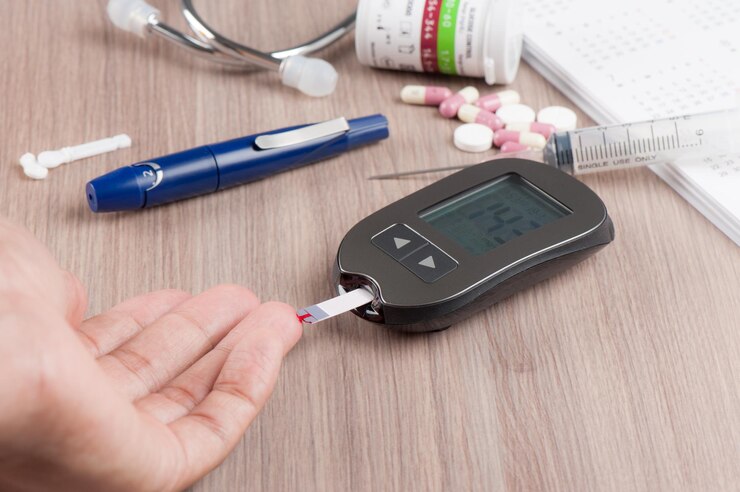Tips to Manage Pre-Diabetic Conditions

Table of Contents
Pre-diabetes is a wake-up call, signaling an increased risk of developing type 2 diabetes. It’s a health condition characterized by blood sugar levels that are higher than normal but not high enough to be diagnosed as diabetes. Managing pre-diabetic conditions effectively can prevent or delay the onset of diabetes. This post aims to shed light on practical tips to manage pre-diabetic conditions, emphasizing the importance of lifestyle modifications.
Understanding Pre-Diabetes
What Is Pre-Diabetes?
Pre-diabetes is a precursory state of diabetes, where your body begins to show signs of poor sugar metabolism, leading to slightly elevated glucose levels in the blood. It serves as an indicator that your metabolism is getting off balance and needs attention.
Risk Factors for Pre-Diabetes
Several factors can elevate your risk of developing pre-diabetes, including:
- Genetics: A family history of diabetes increases your risk.
- Weight: Being overweight or obese is a significant risk factor.
- Age: Individuals over the age of 45 are more likely to develop pre-diabetes.
- Lifestyle: Sedentary lifestyles contribute significantly to the risk of pre-diabetes.
Lifestyle Changes to Manage Pre-Diabetes
Nutrition and Diet
A balanced diet plays a crucial role in managing pre-diabetes. Consider incorporating the following dietary tips:
- Increase Fiber Intake: Foods high in fiber, such as fruits, vegetables, and whole grains, can help regulate blood sugar levels.
- Choose Healthy Fats: Incorporate sources of healthy fats like avocados, nuts, and seeds into your diet.
- Limit Sugary Beverages: Replace sugary drinks with water, herbal teas, or unsweetened beverages.
Physical Activity
Regular physical activity is essential. Aim for at least 150 minutes of moderate-intensity exercise per week. Activities can include:
- Brisk walking
- Swimming
- Cycling
- Aerobics
Weight Management
Maintaining a healthy weight is key. Even a modest weight loss of 5-10% of your total body weight can significantly reduce your risk of developing diabetes.
Monitoring Your Health
Regular Check-ups
Schedule regular appointments with your healthcare provider to monitor your health status and make any necessary adjustments to your management plan.
Blood Sugar Monitoring
Regularly monitoring your blood sugar levels can help you understand how different foods and activities affect your glucose levels, allowing for more targeted management strategies.
When to Seek Professional Help
If you’re struggling to manage your pre-diabetic condition or notice any worsening symptoms, it’s crucial to seek professional help. Healthcare providers can offer personalized advice and treatment options suited to your specific needs.
Conclusion
Managing pre-diabetic conditions requires a comprehensive approach involving diet, exercise, and regular health check-ups. By making these lifestyle changes, you can significantly reduce your risk of progressing to diabetes and lead a healthier life.
Call to Action: Engage with Us
Have you recently been diagnosed with pre-diabetes? Are you looking for more support and tips on managing your condition? Leave a comment below or contact us directly. We’re here to help guide you through your journey to better health.
Also Read: Shilajit Benefits for Men: Uses, Side Effects, Dosage